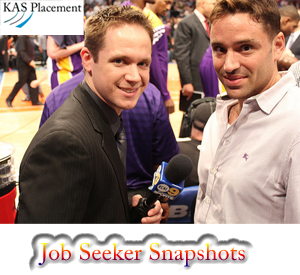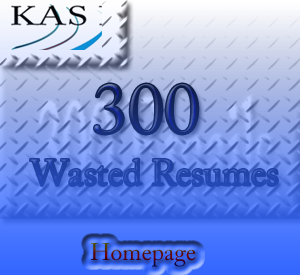
What’s the Difference: Sales vs. Marketing
Saturday, December 15, 2012
By: Micah Levin
As our headhunters see, lot of people graduate from college without a clear idea of what they’d like to do, period. Assuming you’re one of the millions of kids who’d like a decent paying job working for themselves or someone else, you’ve probably told yourself: if I knew what to do with my talents than I’d be successful. According to top KAS marketing recruiting, tell you and many others are probably looking into either Sales or Marketing as possible career options.
I’ve seen a lot of LinkedIn profiles online, and over and over I’ve noticed the same trend of young adults, freshly immersed in the game of job hunting, with a notice about how they are interested in working a job of Sales or Marketing. A job in Sales is going to be different kind of work than a job in Marketing. Mind you the two are not radically different, and often time the job roles rely on each other to meet ends that help companies get the word out and sell goods/services, but if you look deeper you’ll see that one will suit you better.
First of all, what is a job in Sales and what is a job in Marketing like? Lets say you are the kind of person who really understands trends, you know what it means to engage yourself fully with other people and their needs and one-on-one conversations in person and over the phone don’t seem like daunting jobs to you, than a position in Sales might be like just the thing for you. How you conduct yourself with strangers in real life and how easily/comfortably you make friends is a good indicator for how well you would fit in a Sales-oriented position.
Maybe instead you are a brainstormer, you work well in groups with others just as well as you do solo, and numbers relating to statistics representing groups like genders, preferences and years are easily read by you. Marketing might be your first choice then. Creativity and an understanding of what people like when it comes to music, movies, sports, drinks and plethora of other objects of interest indicate that you would do well at a Marketing firm or at a larger corporate company as part of a Marketing team.
Though it is true that sometimes the line between a job in Sales and a job in Marketing overlap, especially when it comes to broad services provided by both positions like public relations work, daily networking and strategy development, it will ultimately be up to you to consider A (the particulars of Sales-type jobs vs Marketing-type jobs) + B (your interests and how they would play into the particulars of those job types) = C (what you would conceive as your ultimate satisfaction working in these jobs).
As I said before, you are all talented and so you will all be successful one way or another if you work hard and have patience, really. But you must ask yourself which role suits you better as you strive to be successful, and more importantly, happy.



















